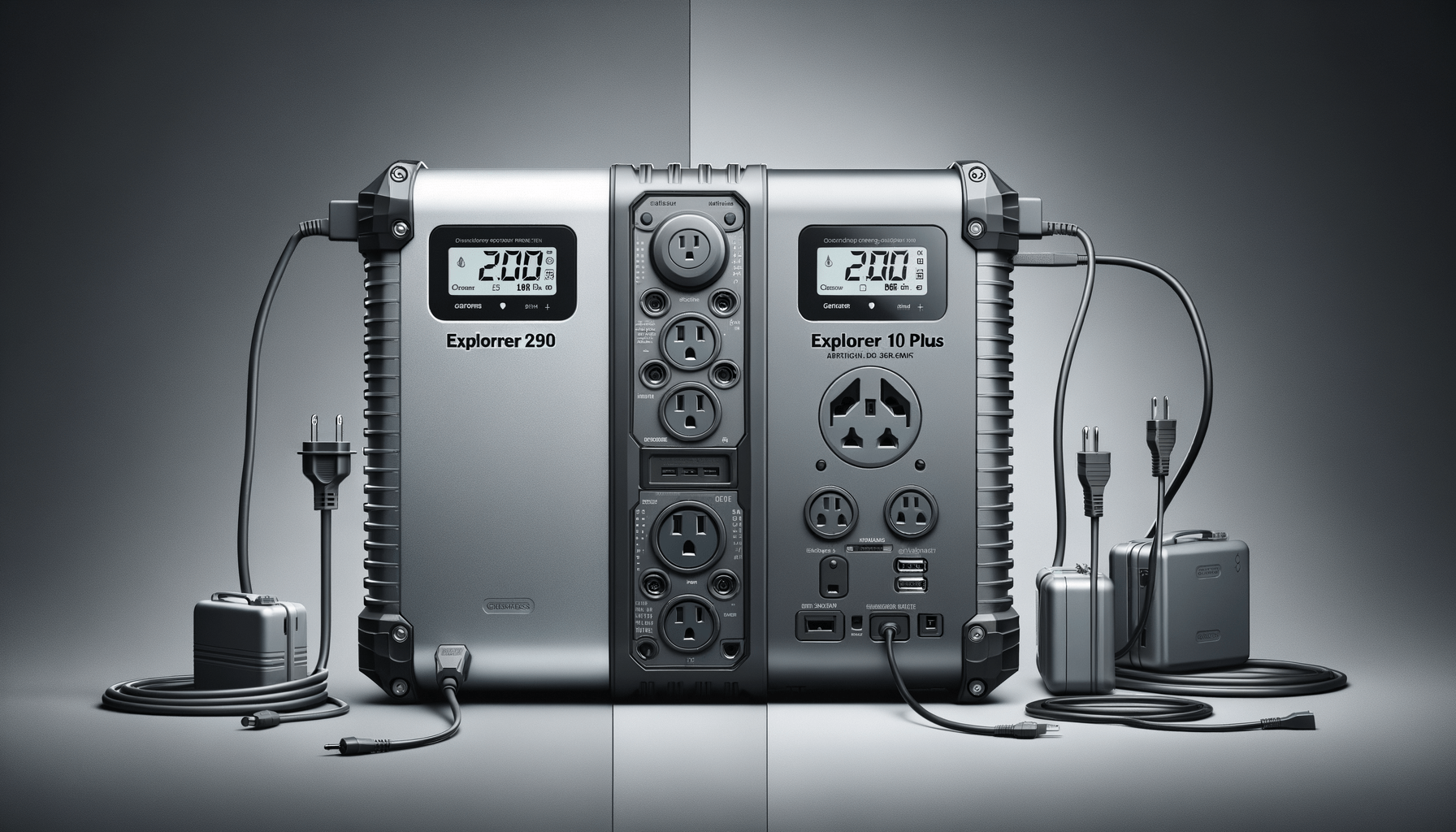When it comes to keeping your devices powered up during camping trips or ensuring you have a reliable backup during power outages at home, portable power stations have become an indispensable tool. In this deep dive, we compare two popular contenders: the Renogy 1000 and the EcoFlow Delta. Each offers a unique set of features geared towards different needs and applications. Whether you’re a semi-technical consumer trying to make an informed decision or simply looking to save on your next portable power investment, this article is here to light up the path to the right choice.
Battery and Capacity
One of the crucial aspects to consider when choosing a power station is its energy capacity and battery quality. The Renogy 1000 comes equipped with a 998Wh LiFePO4 battery, known for long-term endurance, supporting up to 3000 cycles. In comparison, the EcoFlow Delta sports a 1260Wh Lithium Ion battery with a slightly shorter life span, offering 800+ cycles to 80%+ capacity.
Charging and Recharge Speed
Both power stations boast rapid recharge capabilities. The Renogy 1000 features an impressive iTurbo charge, refilling the battery from 0% to 80% in roughly an hour. Not to be outdone, the EcoFlow Delta’s X-Stream technology also allows it to dash from 0% to 80% within an hour, with a full recharge taking about 96 minutes.
Portability and Design
Design and portability are essential for a power station, especially for use on the go. Weighing in at 41.0 lb, the Renogy 1000 is built like a tank with its SGCC steel construction. On the other hand, the sleeker EcoFlow Delta tips the scales at a lighter 30.9 lbs, making it a more mobile option.
AC Output and Power
While both power stations serve up Pure Sine Wave output, which is crucial for powering sensitive electronics, they differ in capacity. The Renogy 1000 provides a robust 6 AC outlets with a rated output of 1500W, and a surge capability of up to 3000W using its iBoost feature. In contrast, the EcoFlow Delta pushes out a slightly higher continuous power of 1800W across 6 AC outlets, with a higher surge capability of 3300W.
Solar and Charging Compatibility
If solar charging is a priority for you, both power stations can assimilate solar energy, but at different efficiencies and input capabilities. The Renogy power station harnesses the sun with a compatibility for Renogy’s portable solar panels and a faster 2.5-hour solar recharge up to 80%. The EcoFlow Delta escalates the competition with up to 400W of solar input, outstripping Renogy’s offering.
Outlets and Connectivity
The outlet variety on a power station can significantly impact its versatility. The Renogy 1000 offers an impressive 12 outlets to run multiple devices, while the Delta not only provides 6 AC outlets but also includes additional USB-C, USB-A, and a car power output, totaling an ample 13 ports.
Use Cases and Applications
Both power stations are suitable for a variety of uses, from outdoor living to emergency home power. The Renogy 1000, with its robust construction and higher total power output, might be more suited for individuals who need a durable, high-capacity power source for demanding appliances. The EcoFlow Delta shines in environments where weight, rapid charging, and a higher count of various port types are more beneficial.
Head-to-Head Technical Specs Comparison
| Feature | Renogy 1000 | EcoFlow Delta |
|---|---|---|
| Battery Capacity | 998Wh | 1260Wh |
| Battery Type | LiFePO4 | Lithium Ion |
| Life Span | 3000 cycles | 800+ cycles |
| AC Output | 1500W rated, 3000W surge | 1800W rated, 3300W surge |
| Solar Input | 220W (Renogy panels) | Up to 400W |
| Charge Speed (to 80%) | 1 hour | 1 hour |
| Total Ports | 12 outlets | 13 ports |
| Weight | 41.0 lb | 30.9 lbs |
In conclusion, both the Renogy 1000 and the EcoFlow Delta offer compelling features for those seeking portable power solutions. Your final choice should hinge on your specific needs: the endurance and total output of the Renogy 1000 are excellent for more demanding power consumption, while the EcoFlow Delta offers greater versatility, a higher battery capacity, and portability.




Leave a Reply